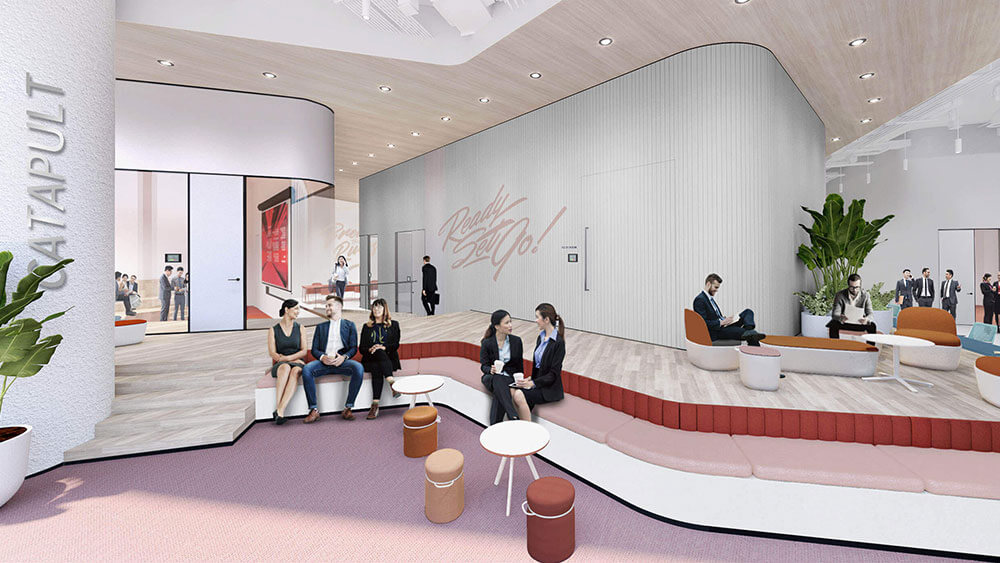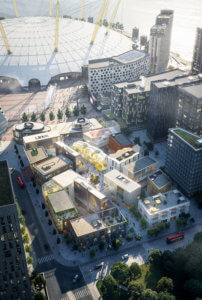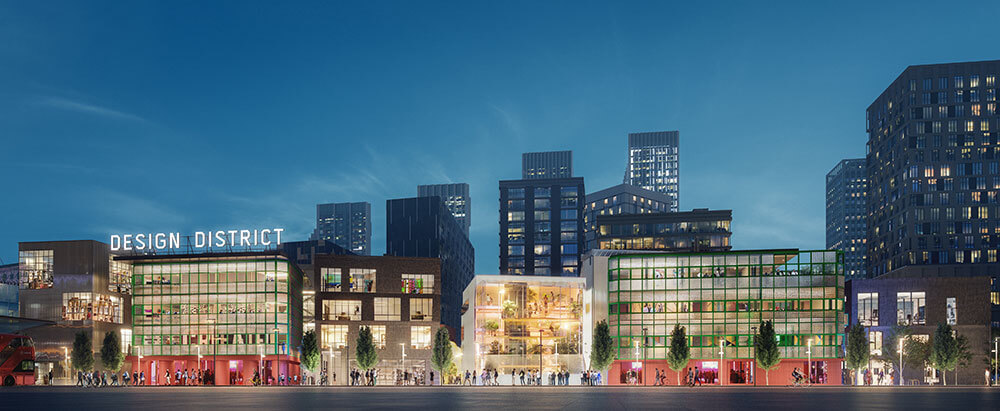
CapitaLand plans to open a shared executive learning center, called Catapult, as part of its Rochester Commons development in Singapore next year. (Courtesy CapitaLand)
As we close out a year that forced many of us to improvise how and where we work, experts are pondering what workplace changes will stick and how they might architect a new kind of office for the future.
The option to work remotely applies to less than half of the workforce in the U.S. — according to recent research from McKinsey & Company, more than 60 percent of workers in the U.S. economy cannot work remotely because of the nature of their work.
But for those who can, the shift has often proven successful, prompting them to try to make it permanent. During a recent WRLDCTY panel, “Future of the Office,” experts in design and real estate discussed how the pandemic and other forces may reshape what we think of as the traditional office.
“In the short term, people have learned now what they can do outside of the office,” said James Andrade, senior vice president and head of learning and innovation for CapitaLand, a real estate group based in Singapore. But for the long term, he said he’s not convinced that working solely from home is ideal.
“People are wired to connect. It’s built in. We need that social component,” said Andrade, who earned a Ph.D. in neuroscience. He shared in the session that the stimuli of an office environment promotes learning and retention. But he believes the traditional office will be reimaged as “a destination not just to do work, but for community, creativity, and innovation.”

London’s Design District is shaking up the traditional office by creating innovative work spaces for creative industries within 16 buildings by eight different architects. (Rendering courtesy of Design District)
This points to why many of those who have had the option to work from home long before the pandemic pay to join a coworking space. This is a primary focus of the burgeoning London Design District, which calls itself “a permanent home for the creative industries,” offering various types of flexible workspaces for artists, designers, and makers.
Helen Arvanitakis, director of the Design District, said during the panel that the pandemic has prompted them to hone their approach as they look toward kicking off their phased opening in 2021. “We’re looking very carefully at what community will mean, certainly initially, whilst we’re expecting technology to be a big part of that. …”
Panelists agreed that the office of the future will be a response to a need for two kinds of work environments. “When it’s heads-down, we work from home; and when we need to collaborate and be creative with each other, we definitely need to be together,” Tom Lloyd, cofounder of London-based design studio Pearson Lloyd, said of his own team’s current approach. He believes that companies and organizations may redesign their existing office space to accommodate this kind of dual-pronged approach for the long term. Arvanitakis said that they’re considering offering plans that allow businesses to lease space for team gatherings a couple of days a week, which would also help businesses pressed financially by the pandemic in the short term.
“People are beginning to understand that one or two days at home is good for people’s mental health,” Lloyd said, adding that there are positive, macro-level benefits to consider as well, from reduced real estate footprints for businesses to relief for overburdened public transportation infrastructures.
Future offices may also reflect a redirection of values. CapitaLand plans to open a 54,000-square-foot, shared executive learning center, called Catapult, as part of its Rochester Commons development in Singapore next year. “We’re trying to turn the office into a place not just where you do work, but a place for community, and a place where you build skills,” Andrade said.
Lloyd echoed that shift toward office spaces as a place for learning, adding that companies and organizations must focus on these kinds of opportunities in order to stay competitive and attract talent. “It [could be] a much more complex, and maybe more enjoyable future,” Lloyd said, “where you see this sort of university setting in the workplace.”

New buildings of the Design District will change the view near the O2 Arena in London when the innovative office complex opens in 2021. (Courtesy of Design District)
Jennifer N. Dienst is managing editor at Convene.
